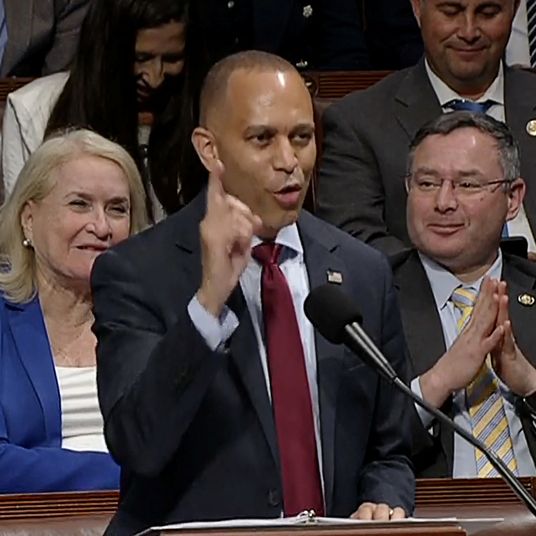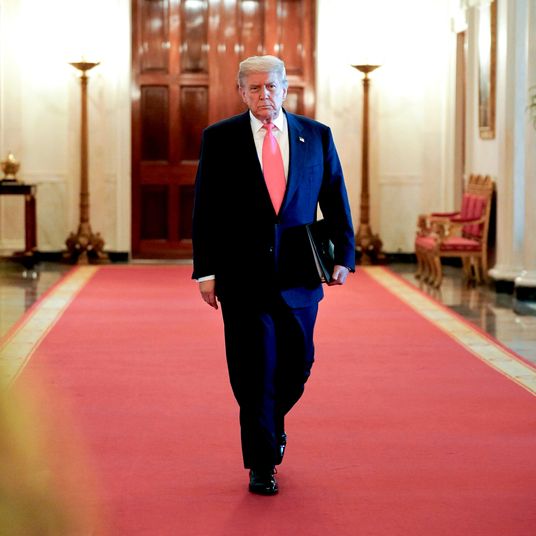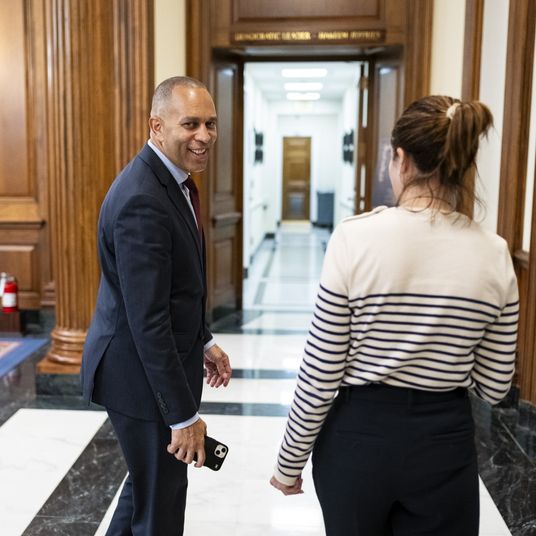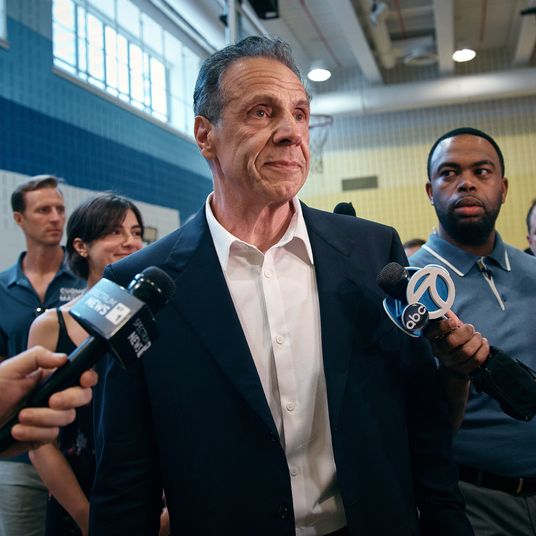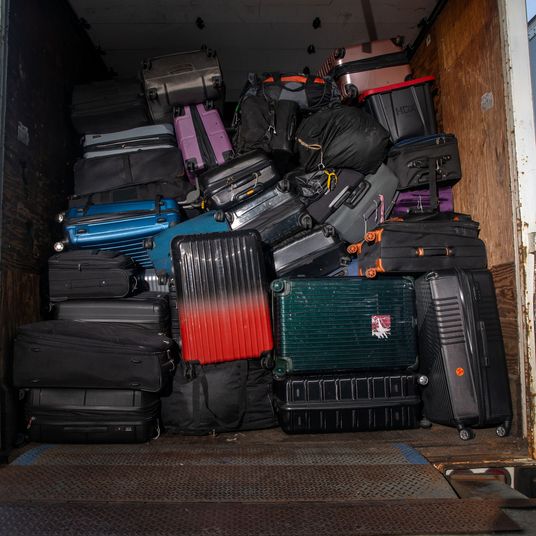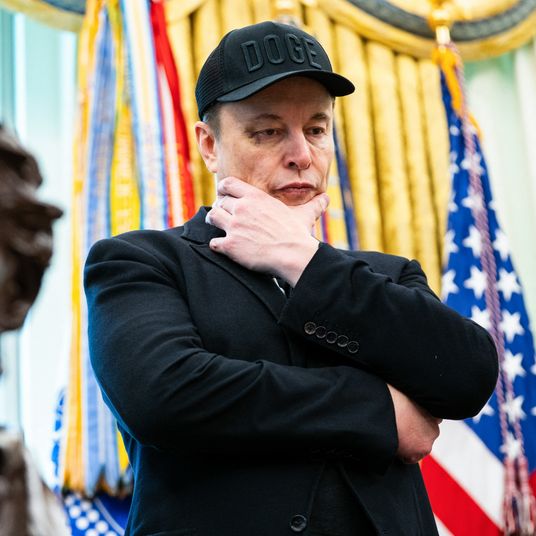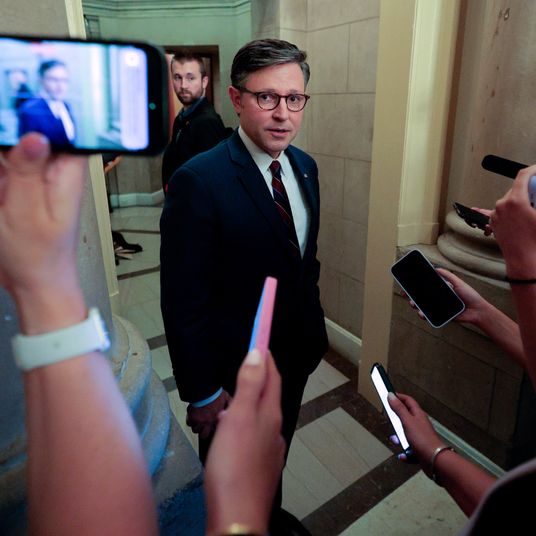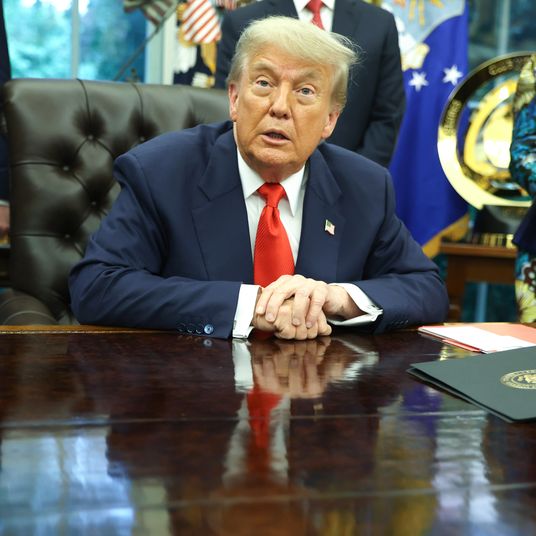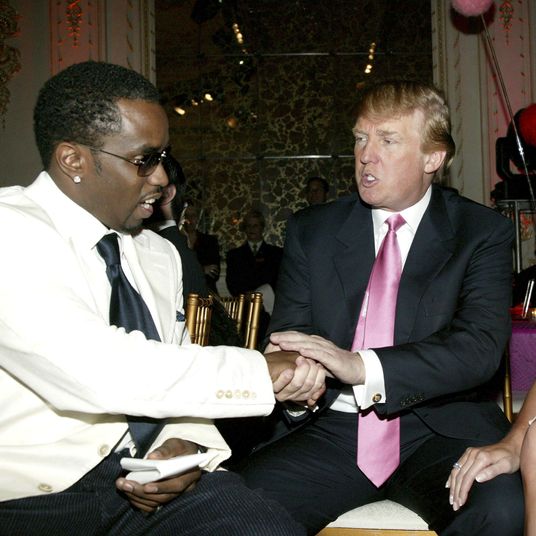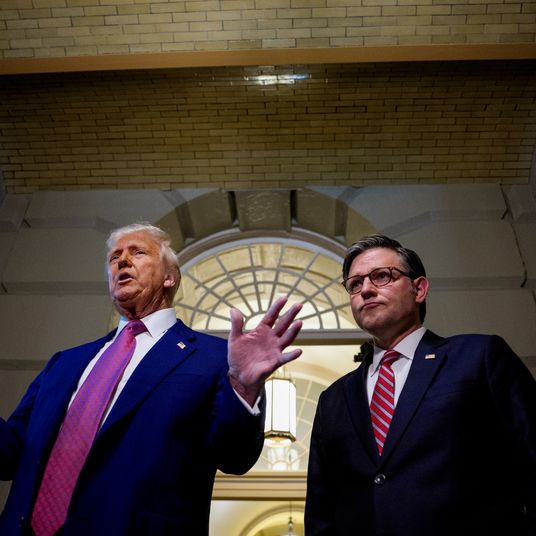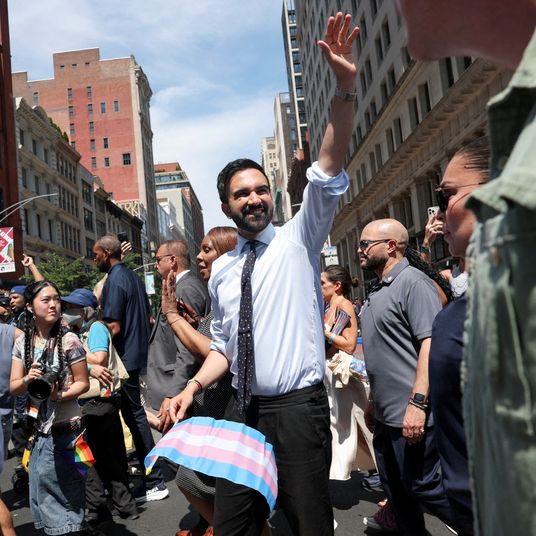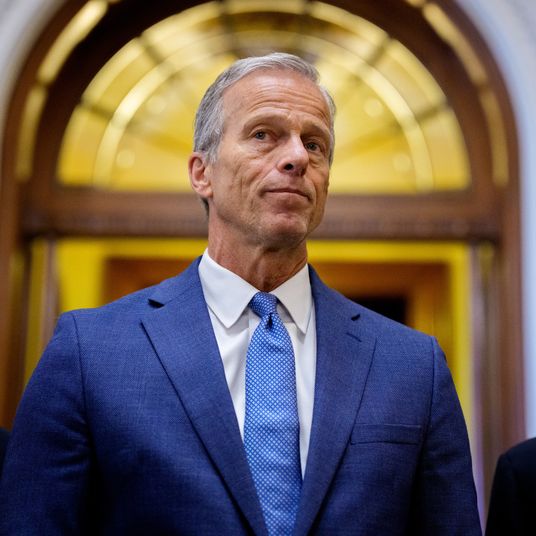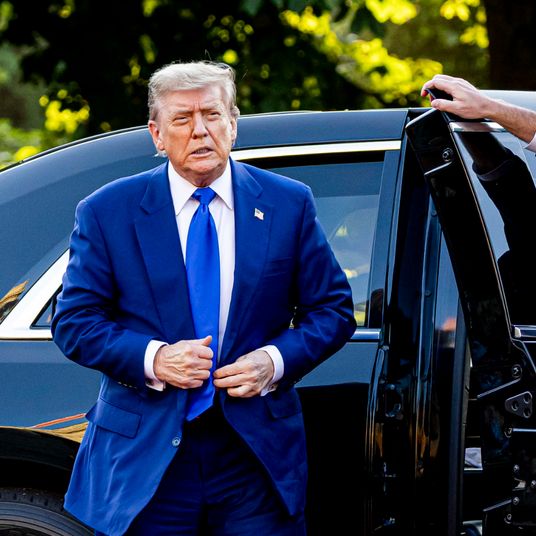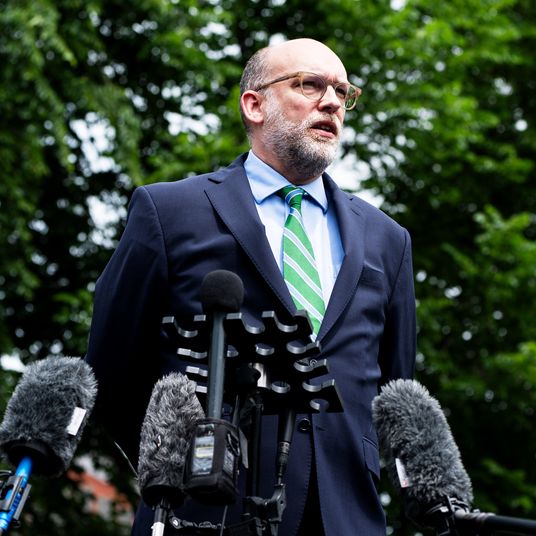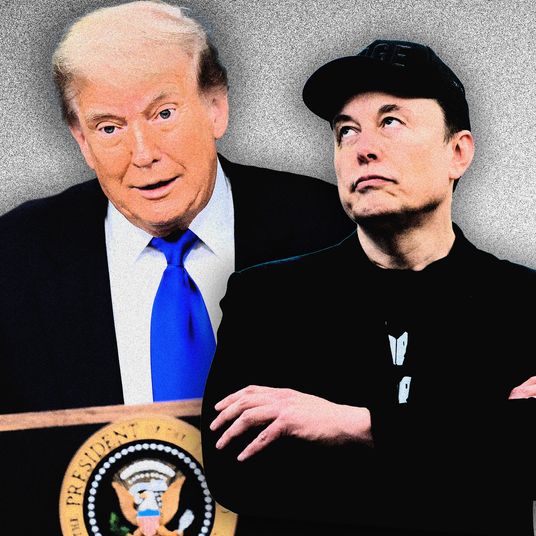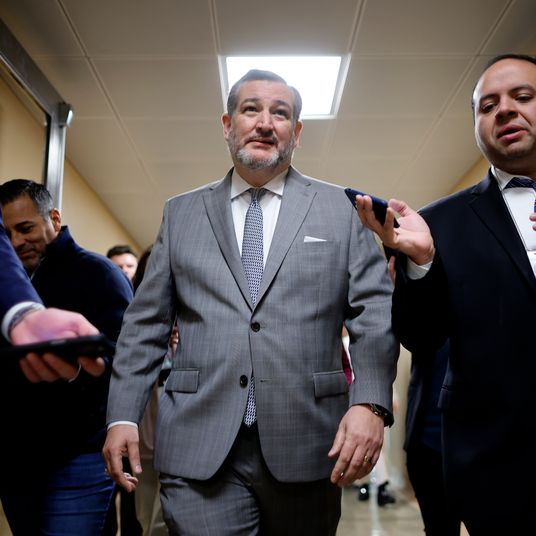
If you were to start a media organization in 2025, probably the last thing it would be is a cable-news network. Younger audiences are fleeing television, making cable news a decidedly geriatric business. Earlier this year, CNN said it would eliminate about 200 jobs in its traditional TV operations while adding around the same number for digital positions. And yet building a cable-news channel from the ground up is basically what MSNBC is about to do.
When it was announced this past November that Comcast would be spinning off MSNBC — along with CNBC, E!, and other cable channels — from NBCUniversal, questions abounded about what the decision would mean for the progressive network. While MSNBC is best known for brainy talking heads like Rachel Maddow and Chris Hayes, for nearly three decades it has relied on NBC News for the newsgathering and verification that undergird a lot of its programming. Under SpinCo, the unfortunate provisional name for the new company, would MSNBC just become a pure opinion play? Was MSNBC being set free or cut loose?
MSNBC’s new president, Rebecca Kutler, seemed to answer that question last week when she announced that MSNBC would be building out an independent reporting operation, led by veteran executive Scott Matthews. The network will be hiring more than 100 journalists — from field producers to correspondents to photographers — to work across the operation, which will include a bureau in Washington (for which it’s looking for a bureau chief) and a newsroom in New York.
What MSNBC is doing is a bright spot for the news industry right now. It’s also an unprecedented experiment in real time in making a cable-news operation that works. “If you stripped all of these institutions from the systems that created them and remade them in contemporary times, you would do a lot of shit differently. And that’s sort of what SpinCo gets to do,” one senior news executive said. “Yes, the economics look different. But they’re not assigned the same rules.”
“I actually think building a news organization from scratch is a really fun idea in this day and age, because, first of all, there’re a lot of good people available, and you can craft a pretty good news organization for a pretty reasonable amount of money,” said former CNN president and NBCUniversal CEO Jeff Zucker. MSNBC is “going to actually be building and growing and unencumbered by having to worry about what NBC News thinks about it.”
Others are more skeptical. “If it has 100 journalists, that’ll be more than it’s ever had there,” said one longtime news executive. “It’s a whole different animal, and that’s not what it’s built to do.”
The end product won’t actually look a whole lot different from how it looks today: MSNBC will still be doing a lot of resistance bait, in the mornings, at night, and on weekends. Still, the enterprise journalism it commissions will drive shows throughout the day, offering plenty of opportunities for an openly progressive network to blanket stories that Fox News won’t touch or CNN may be wary of owning, such as the ongoing detention of activist Mahmoud Khalil.
This is the first time that MSNBC, backed by a $7 billion corporate parent, gets to build something bespoke to its audience. As a prominent talent agent put it: “Without the pressures of shareholders, stock prices, or external investments, the challenge now is about threading the needle: How does it balance investment in television, where it still makes the majority of its money, while knowing it’s a declining asset, against strategic investments in other growth opportunities?”
Launching the news operation is the biggest development for MSNBC so far under Kutler, who after more than two decades at CNN joined the network as senior vice-president of content strategy in 2022 and became head of MSNBC in February. “Rebecca was tied into most talent decisions at CNN,” another talent executive noted. “She worked closely with Jeff and cultivated a ton of relationships — with talent, with contributors, with producers. And a lot of people want to work for her.”
Not least because of her no-bullshit approach to the job — in her first major change as president, Kutler last month announced an overhaul to MSNBC’s lineup that included canceling Joy Reid’s 7 p.m. show. While Reid has complained that her show “had value” and implied that it was canceled for her outspoken positions on issues like the Black Lives Matter movement, it has often been MSNBC’s lowest-rated show in prime time. Reid will be replaced by a panel hosted by Symone D. Sanders Townsend, Michael Steele, and Alicia Menendez, while Jen Psaki, one of MSNBC’s biggest stars, will take Alex Wagner’s place as host of the 9 p.m. slot. (Wagner will remain with the network as a contributor.) Kutler has also brought on Eugene Daniels (currently a White House correspondent for Politico) and Jacqueline Alemany (currently a White House reporter at the Washington Post), who will co-host a weekend show alongside Jonathan Capehart, and Catherine Rampell (also from the Post), who will join Ayman Mohyeldin in the evenings on the weekend. In addition to the 100-plus journalists the network is hiring for the new newsgathering operation, MSNBC internally posted 100 jobs related to programming when it made the lineup changes a few weeks ago.
For all the talk of TV’s long-term decline, there’s still money to be made. “We live in a much more digital era when individual brands and people are enjoying all kinds of success on both sides of the aisle,” one longtime TV executive acknowledged. “Having said that, Fox News has enjoyed a complete renaissance since the election, and frankly MSNBC still has huge audiences even if they are principally over the age of 65,” they said. “These are still, even in their diminished state, very profitable businesses.”
And MSNBC could grow more profitable still, at least in the short to medium term, thanks to a bottomless desire for anti-Trump content that has lifted up podcasts and Substacks alike. Following a dip after the election, MSNBC has seen growth since Trump’s inauguration. From January 20 to March 7, the channel averaged 1.4 million viewers in weekday prime time, compared to 739,000 viewers for the immediate post-election period, a 95 percent increase. Across the whole day, there was a 44 percent increase in viewership. Even Morning Joe has bounced back after a calamitous overture to Trump shortly after the election, with Joe and Mika hammering the president daily. As a senior news executive put it, “The audience wants to hear every day that this is not normal; this is not acceptable. And if you lose the thread, you lose credibility. And that’s the whole fuckin’ game.”
There’s also plenty of room to diversify. MSNBC is looking closely at starting a streaming service (you can find it on Peacock at the moment) as well as growing its audio and live-events businesses. Digital is also, obviously, a priority, and MSNBC has a strong presence on YouTube, seeing 325 million viewers in February and finishing 2024 as the No. 1 news brand on all of YouTube, per an MSNBC spokesperson.
MSNBC is also looking at partnering with political brands and voices who have built-in audiences, I’m told. There’s no shortage of left-leaning content creators who might fit the bill, such as The Bulwark’s Tim Miller (an MSNBC contributor) and the folks at MeidasTouch. Whether such creators have incentive to cater to TV is a different matter. “Why would any YouTuber want to go to MSNBC?” one longtime news executive noted. “It’s a smaller audience for them.”

